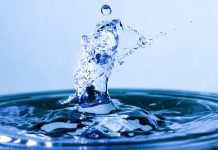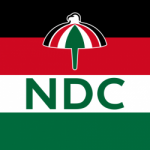Energy sector players are demanding accountability on the GH₵1 fuel levy and transparency actions to address persistent revenue and supply shortfalls.
The Ghana Revenue Authority (GRA) on July 16, 2025, directed Oil Marketing Companies (OMCs) to begin charging a GH₵1-per-litre Energy Sector Shortfall and Debt Repayment Levy on refined petroleum products.
The levy was designed to raise additional revenue for the energy sector — mainly to fund fuel purchases for thermal power plants and settle outstanding sector debts.
The Chamber of Petroleum Consumers (COPEC) is demanding clarity on how much has been collected and how the funds are being utilized.
Executive Secretary Duncan Amoah says government must provide an update in the 2026 Budget presentation, while also prioritizing funding for a second gas processing plant to strengthen Ghana’s energy security.
“So far the economy seems to have been able to adjust to accommodate (the levy). Whatever needs to be done to consolidate it we will want to see it consolidated. Whatever it is, the tax will also need to be accounted for and we expect that the Finance Minister will capture it in the budget equally
“Whatever the Finance Minister has towards getting the train II on stream to complement the current gas processor at Atuabo, we will be happy to hear that equally because it saves this economy a lot,” Duncan Amoah added.
In the downstream sector, fuel prices have trended lower in the first pricing window of November, aided by marginal cedi stability and favorable prices of petroleum products on the international market.
Executive Director of the Center for Environmental Management and Sustainable Energy, Benjamin Nsiah, says maintaining currency stability will be key to sustaining the current downward trend at the pumps.
He also urges government to deploy policies aimed at closing persistent revenue gaps in the energy sector.
“The data has shown that revenue mobilization has improved under this government by ECG but we think that system losses are still high and through such partnership, we will be able to curtail or manage this higher system loses and ensure that there is a certain financial discipline and operational discipline at ECG. We expect to hear much on the private sector participation,” Benjamin Nsiah remarked
While the downstream petroleum market shows some resilience, Ghana’s upstream oil and gas industry continues to face headwinds.
Benjamin Nsiah warns that without a review of existing upstream laws to attract fresh investment, the sector’s declining output could weigh on government revenue targets and long-term energy sustainability.
“We need to review our regulatory and licensing requirements to ensure that there are medium operators within the space so that they can scale up production for us to meet the revenue target that we have projected for our budget from 2025-2030” he stressed.
























































![[FREE FREE MONEY] Predict and Win a Guaranteed GH¢200 From Us EVERY WEEK](https://wordpress.ghanatalksradio.com/wp-content/uploads/2022/02/Predict-and-Win-Final-09-03-2021-218x150.jpg)
![[Predict & Win – 8th/Oct.] WIN A Guaranteed ¢200 From Us This Week](https://wordpress.ghanatalksradio.com/wp-content/uploads/2021/10/maxresdefault-16-218x150.jpg)
![[Predict & Win – 2nd] WIN A Guaranteed ¢200 From Us This Week](https://wordpress.ghanatalksradio.com/wp-content/uploads/2021/09/maxresdefault-50-218x150.jpg)
![[Predict & Win – 25th] WIN A Guaranteed ¢200 From Us This Week](https://wordpress.ghanatalksradio.com/wp-content/uploads/2021/09/maxresdefault-36-218x150.jpg)
![[Predict & Win – 18th] WIN A Guaranteed ¢200 From Us This Week](https://wordpress.ghanatalksradio.com/wp-content/uploads/2021/09/maxresdefault-23-218x150.jpg)









![[National cathedral] See full list of churches that have contributed since 2018](https://wordpress.ghanatalksradio.com/wp-content/uploads/2020/09/Ghana-National-Cathedral-GhanaTalksRadio-100x70.jpg)



